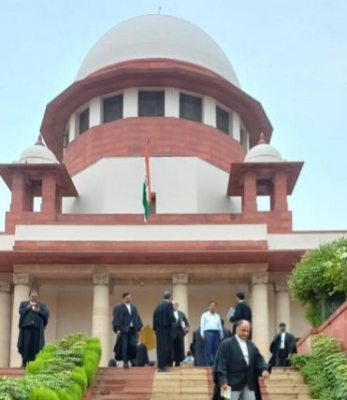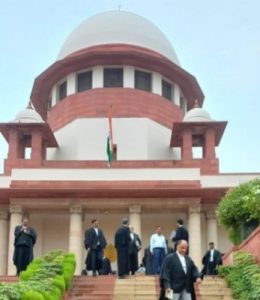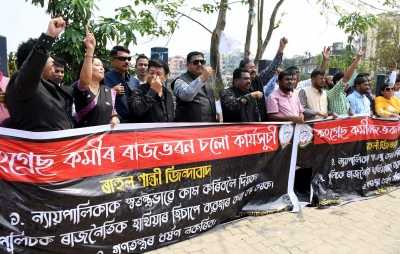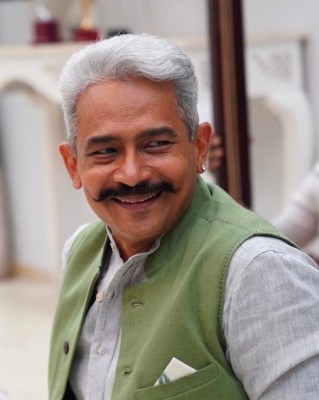
New Delhi, Feb 22 (IANS) The Supreme Court has agreed to consider whether a State Human Rights Commission has the power to examine a case of criminal medical negligence when a contrary view has been taken by the National Human Rights Commission (NHRC).
A bench of Justices Hrishikesh Roy and Sanjay Karol was hearing a matter filed by IVF doctor Roya Rozati from Telangana.
The bench noted that the petitioner is charged with medical negligence and her contention is whether the State Human Rights Commission has the power to examine a case of criminal medical negligence when a contrary view in favour of the petitioner was taken by the NHRC.
The top court noted the view taken by NHRC by an order passed on March 29, 2016.
The NHRC had said: “Direction issued by the Commission: This case pertains to allegations of medical negligence by a private nursing home. Since to public servant is involved in this case the matter is dismissed in limine. The file be sent to SB-II after issuing the letter. Action taken: Dismissed in limine (dated 3/29/2016). Status on 5.17.2016: Dismissed.”
The top courtA posted the matter for further hearing after four weeks, and directed pleadings to be completed in the meanwhile.
The medical practitioner has been charged with criminal medical negligence for administering fertility related drugs to a patient who was suffering from tuberculosis and ultimately, these proved to be fatal to her. The matter was referred to the NHRC which refused to interfere stating that no public servant is involved. However, the State Human Rights Commission issued notice to Rozati and sought documents from her.
Advocate Namit Saxena, appearing for Rozati, argued that there is a statutory bar under section 21 of the Protection of Human Rights Act that once the NHRC or any other state human rights commission adjudicates upon a complaint, no other state human rights commission can examine the same.
–IANS
ss/vd










